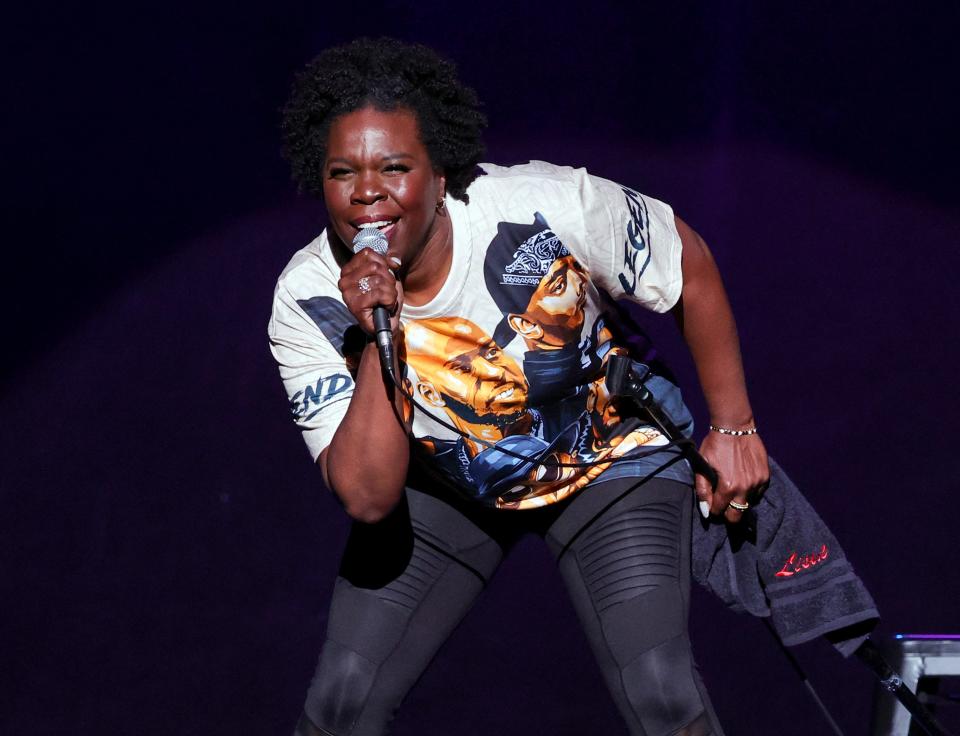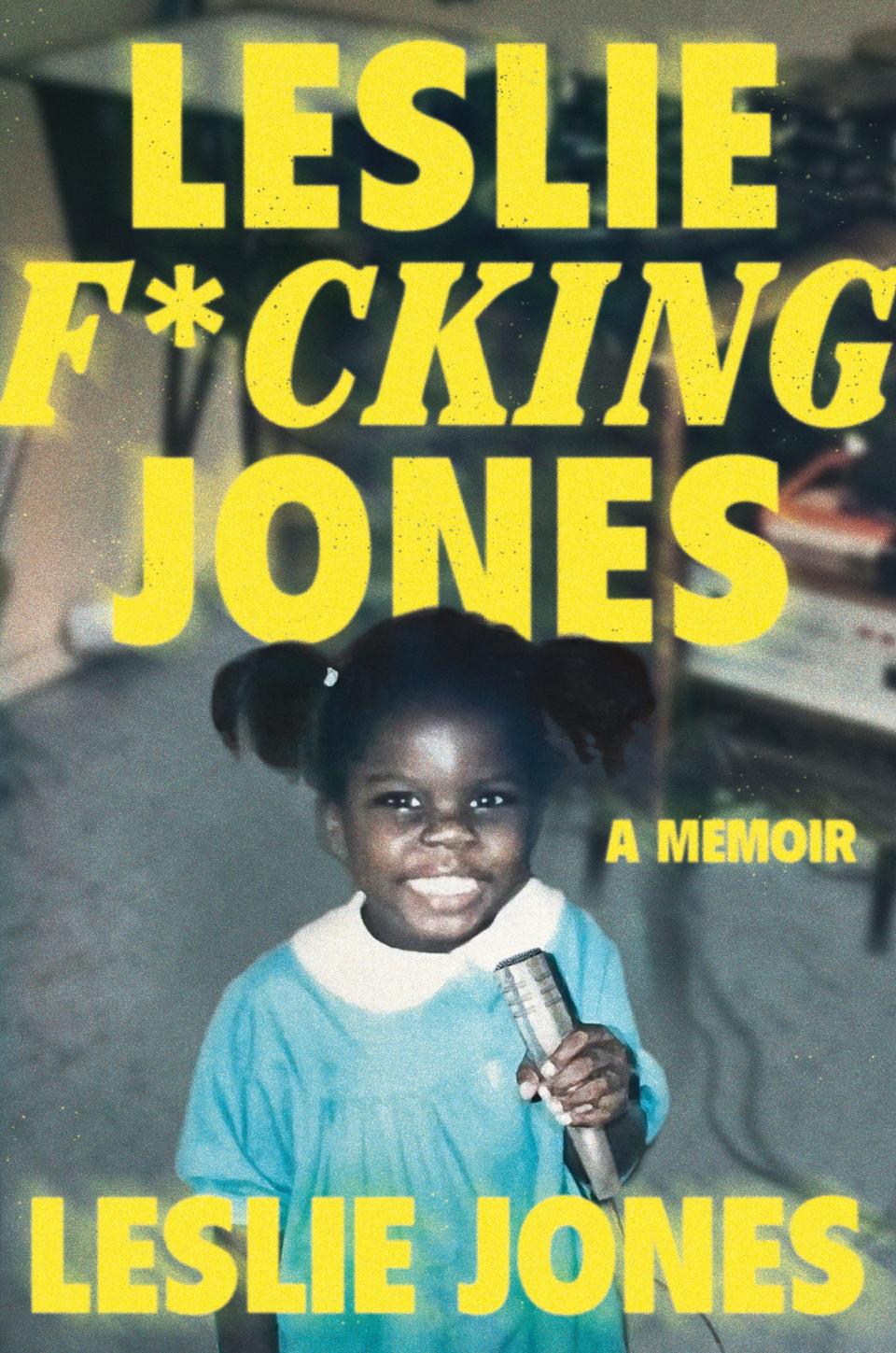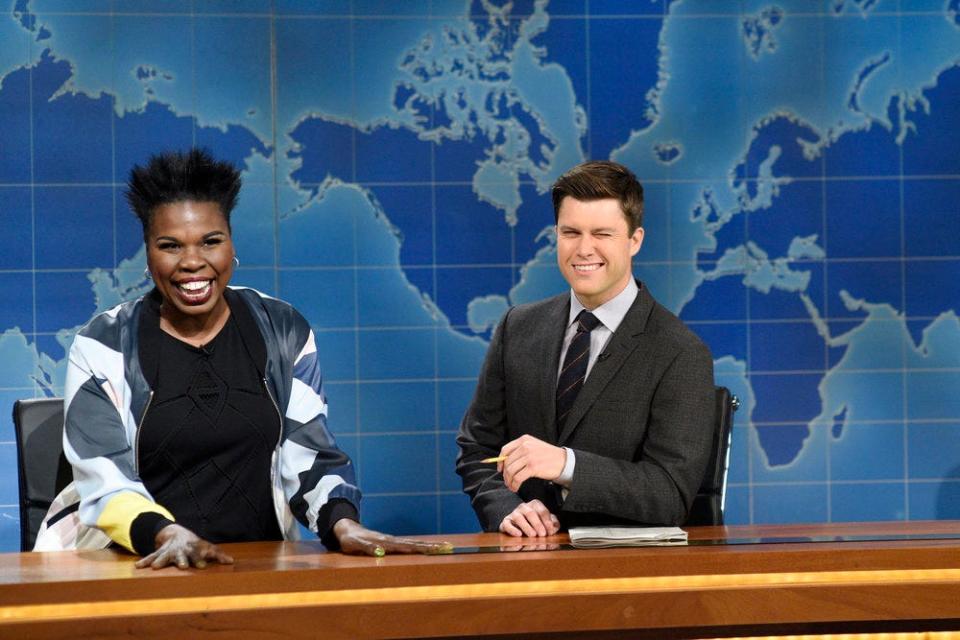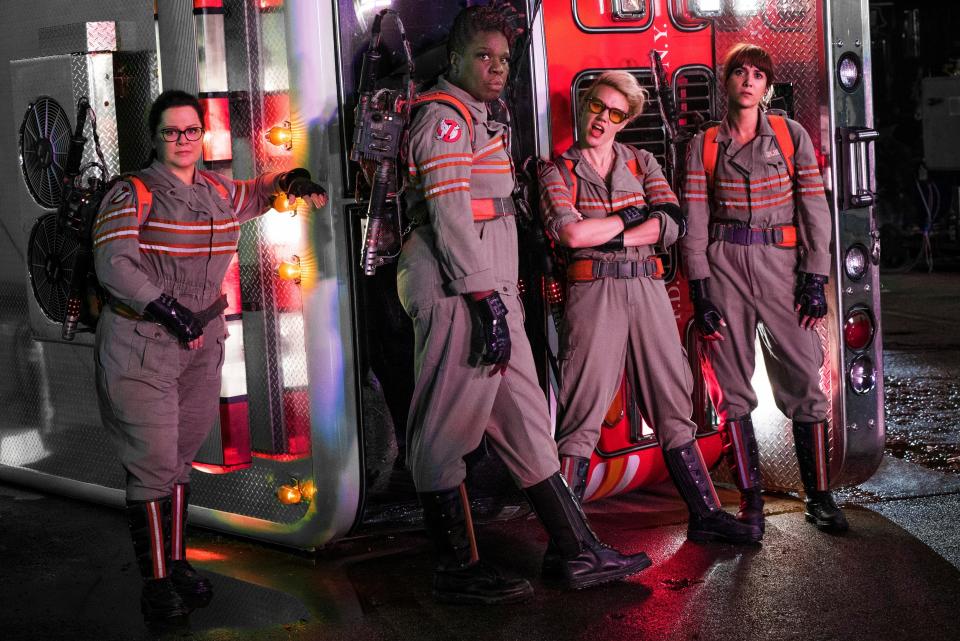'The bad stuff don't last': Leslie Jones juggles jokes, hardships in inspiring new memoir
Purchases you make through our links may earn us and our publishing partners a commission.
Leslie Jones’ father told her, “Be undeniable,” and it’s a mantra the actress and comedian has embraced in all aspects, including the title of her memoir: “Leslie F*cking Jones.”
It’s probably better than, say, “Annette,” her actual first name that was supposed to be a great punchline in a cut “Saturday Night Live” sketch – a story Jones tells in her new book (out now). She started off in comedy just being known as Leslie, until one fateful night at a club in 2011. “I wanted to be like Madonna, Whoopi, whatever,” Jones tells USA TODAY. “The club booker was like, 'What's your last name?’ And I was just like, ‘I don't go by my last name,’ but when I said Leslie Jones, he was like, 'Leslie (expletive) Jones. That's a star's name right there.'”
Jones chronicles moving around as a kid because of her tough Army dad, going from twirling rifles in marching band to starring on the basketball courts, and then becoming a force on the standup circuit before nabbing her high-profile “SNL” gig (from 2014-19) and roles in movies like 2016's “Ghostbusters.” But alongside jokes and self-help lessons, Jones gets real about her pain and hardships, from being sexually abused by a babysitter as a toddler (“Man, I wish I could go back and fight that guy – that little girl couldn’t protect herself,” she writes) to losing both her parents and her troubled younger brother.

“Life is fricking hard but the bad stuff don't last,” she says. “What I wanted to get across is just everybody to know that, hey, I know you're looking at stars and you're like, ‘Oooh, she did comedy one night, and then bam, she was on "SNL."’ No, I'm a real person and a real person had a real life and became this.”
Jones, who just turned 56, talks with USA TODAY about her writing, a medical issue that was “the most horrific part of my life,” and her thoughts about the ongoing Hollywood strikes.

Question: What was the most difficult thing to put it on paper and tell the world?
Leslie Jones: I guess the stuff about my family and my relationship with my father. When I'm telling the stories of the things that I'm going through at those times, the emotions come up because it's like, “Damn, that was really hard. How was I getting through that?” The stuff about my brother, talking about the death of my people, just personal things, dating-wise, life-wise. I think all of it was hard.
When we finished, it felt like I took a big crap. You know what I mean? I just (crapped) out a big portion and opened up a whole big library of extra space.
Speaking of that, you tell a hellish story where you had surgery for chronic hemorrhoids and endure a harrowing recuperation during the early days of the pandemic, ending with a whole other kind of relaxing sensation.
It was the most painful thing. There was a moment where I was like, “Yo, dude, you're praying and you're trying to manifest that you want to be happy. But how can you be healthy and you have this painful thing going on in your body?” It was a real thing of coming to Jesus like, “Are you going to deal with these hemorrhoids at 72?” It was one of the scariest things I've ever done but still to this day, it was the best thing I ever did for my life.

Multiple times in the book, you mention quantum-leaping back to your younger self to tell her "all the stuff she needs to hear." But would younger Leslie have listened to older Leslie?
I don't know if I would've quantum-leaped back and told me the major things, because I don't know if that would've changed me. I might not have been Leslie (expletive) Jones. And you are right. First of all, if I physically quantum-leaped back to talk to past Leslie, past Leslie is going to rob future Leslie. Straight up, especially if I come back with some Dunks and like money or something. “Give me your money because you don't need it. I know those shoes fit me. Just strip, take it all off. I'll wear that outfit tonight. Can you write me a check?”
You've done standup, been on "SNL," hosted TV shows, starred in movies and now written a book. What's your next conquest?
I ask myself that all the time. I really have worked very hard to put myself into a position where I'm not desperate. I don't need to be a katrillionaire. All my houses are paid off. My family's happy. I'm content. I'll be OK till I die. I’ve been thinking, I’m getting older and I don't want to have to travel a lot because I don't like flying. I want to be stationary. I want to be in a steady situation, like maybe a sitcom or a talk show where I go to work and come home. I think it's time for that, but I just don't know what that looks like.

With the strikes shutting everything down, has that made you think differently about Hollywood and what you want to do?
It has because it always just baffles me. You think that I'm going to say, "Yo, go ahead and scan my face and use it for the rest of my life and don't pay me"? Does that sound logical to you? We got billionaires and people who just don't understand that they're making choices that affect mass numbers of people and they don't care. That's very scary.
For a long time I was like, “I want to be an artist. I want to make people laugh. That’s my job as a comedian.” But it's really hard for me to sit on the side and have the influence that I have and not contribute. There's going to be three or four Leslie Joneses after me. I don't want them to have to go through what I went through. I can't just sit here and do nothing.
This article originally appeared on USA TODAY: 'SNL' veteran Leslie Jones talks new memoir, Hollywood strikes
